Obamacare 'saved my life': Americans warn how devastating ACA repeal would be
The Supreme Court began hearing arguments on the constitutionality of the Affordable Care Act (ACA)’s individual mandate, which requires people to obtain health care coverage or else face a tax penalty.
The Texas attorney general is arguing that the individual mandate of the ACA, commonly known as Obamacare, is unconstitutional and should invalidate the entire law. Lawyers arguing for the ACA contend that the “carrots work without the stick,” meaning that the landmark law functions lawfully without the individual mandate.
The result, expected in June 2021, could affect more than 21 million Americans. A repeal of the landmark health care legislation would lead to a 69% increase in the number of uninsured Americans, particularly in states that adopted the Medicaid expansion allotted by the ACA.
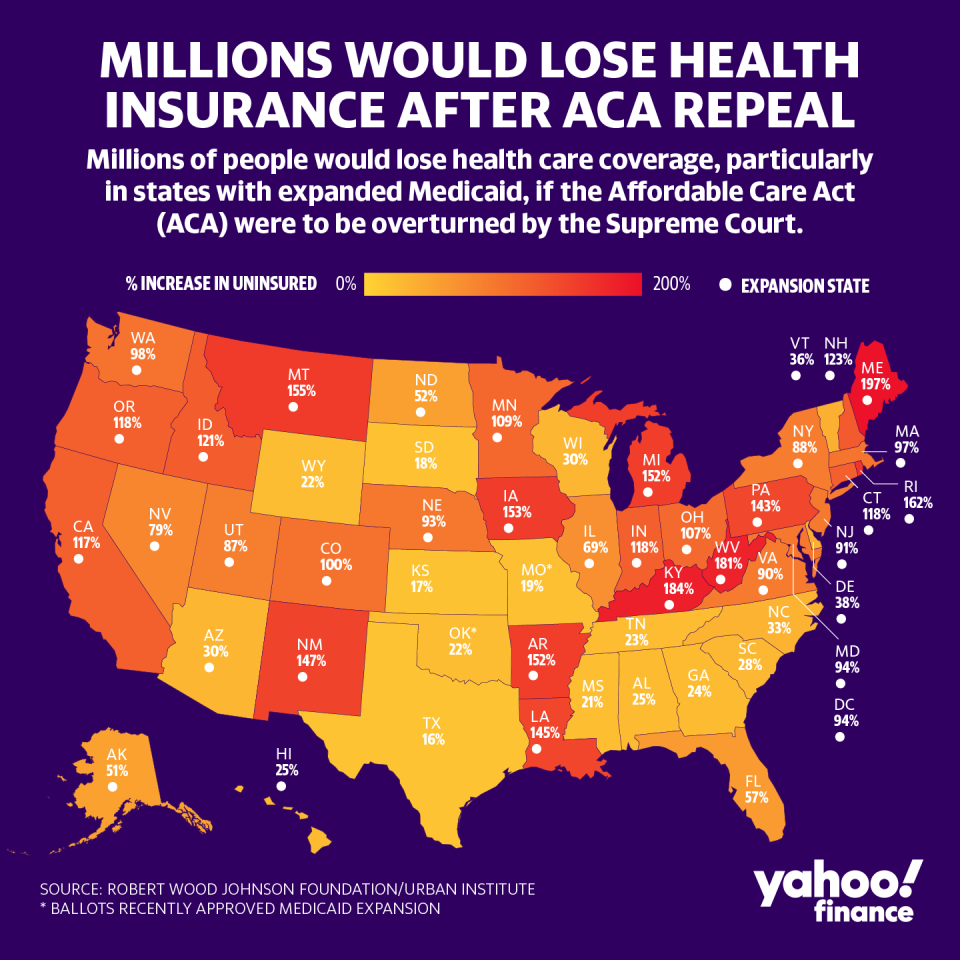
President-elect Joe Biden delivered remarks on the Supreme Court case on Tuesday afternoon, emphasizing his support for Obamacare.
“Twice already the Supreme Court has upheld the landmark law in 2012 and again in 2015,” he said. “Now in the middle of a deadly pandemic that has affected more than 10 million Americans — nearly 1 in every 32 Americans, often with devastating consequences for their health — once again these ideologues are trying to strip health coverage away from the American people.”
He continued: “The goal of the outgoing administration is clear from the brief they filed in the Supreme Court: It asserts, and I quote, the entire ACA thus must fall. I'm not naive about the fact health care is an issue that has divided Americans in the past, but the truth is the American people are more united on this issue today than they are divided.”
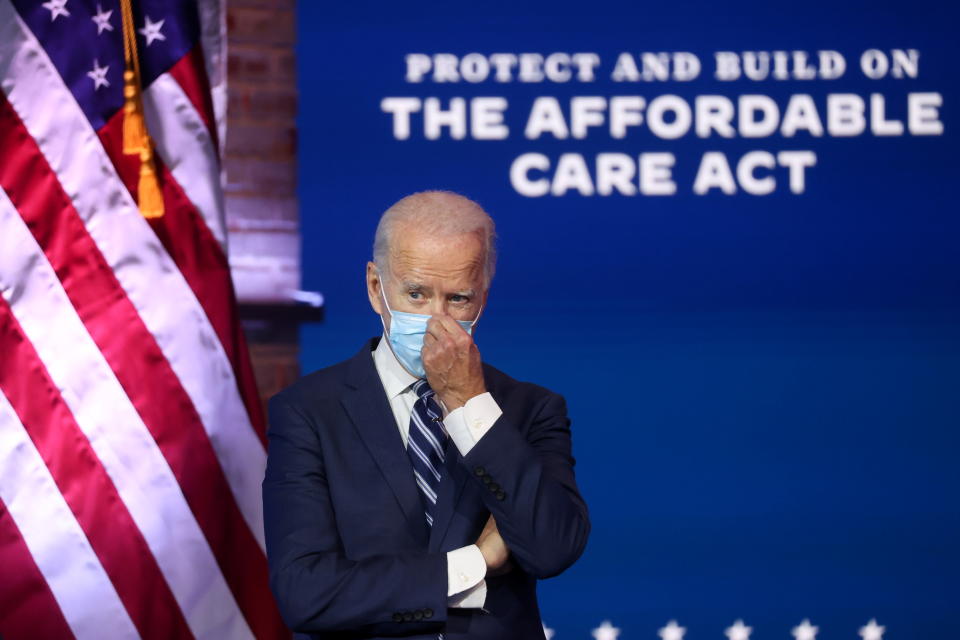
‘The ACA really has saved my life’
Before Medicaid was expanded under the ACA, Pennsylvania native Brian Kline spent nine years relying upon free health clinics for his health care needs.
In 2014, he was diagnosed with stage III colorectal cancer. Although he later made too much to qualify for further Medicaid and now has an insurance plan through the ACA, he still credits Medicaid and Obamacare for saving his life.
“The main benefit of Medicaid expansion — it just so happened that I was diagnosed with stage III colorectal cancer, and it took care of everything,” Kline told Yahoo Finance. “It gave me that economic security in knowing that care is going to be there for me. I don’t have to worry about medical bankruptcy. I don’t have to avoid or not go to a doctor’s visit or not do a CAT scan and just watch my cancer transform into stage IV and perhaps eventual death. Medicaid expansion — it saved my life.”
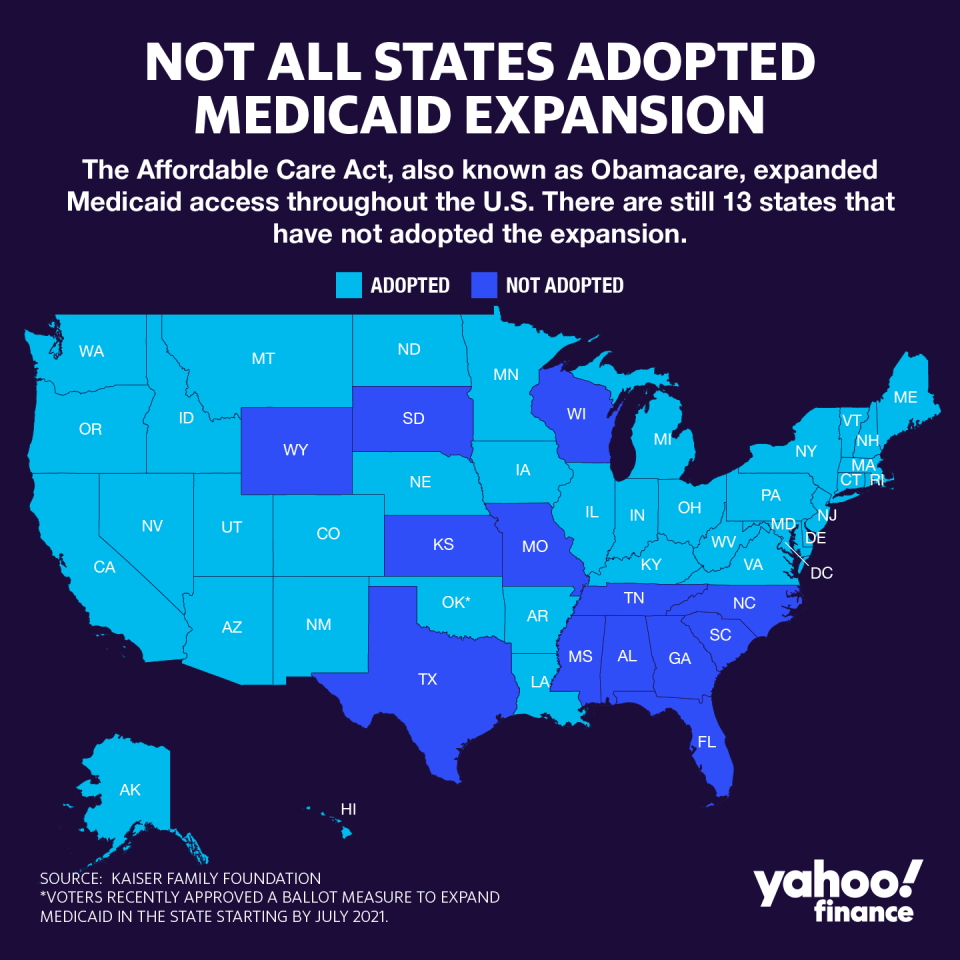
Kline is still “under surveillance” for his cancer, even though he is in remission. He has to check in with an oncologist and receive a yearly CAT scan.
“Without the ACA, without those subsidies, there is no way I could afford to pay for that medical care,” he said. “I could not afford to see my doctor, to get a CAT scan, to pay for that out of pocket. There’s just no way it would happen for me. So the ACA really has saved my life.”
The subsidies he is referring to are another part of Obamacare. Since Kline makes too much to qualify for Medicaid but still has an income of up to 400% of the federal poverty level, he can obtain a tax subsidy between $12,760-$51,040 for 2021.
Without that tax subsidy or protections for his cancer, Kline is fearful of what would happen to his health coverage.
“If the ACA was overturned today, I certainly have a pre-existing condition along with millions of other Americans,” Kline said. “Without the ACA, I could be discriminated against by an insurance company. I could be denied insurance or they could charge me an astronomical premium, which I could not afford.”
‘Daycares didn’t want to deal with him’
Bevie Ketel, a divorced mother in New Hampshire, worries for her nine-year-old son, John, who has Type 1 diabetes. Due to his condition, John has faced discrimination in many facets of life, including daycare, school, and obtaining health care. That would get worse if Obamacare were to be repealed.
“I started taking disability courses because he was getting discriminated against at daycare,” Ketel told Yahoo Finance. “If they could get just a regular child, it’s less work than having to work with an iPhone to tell you when his sugars are going up and down… So daycares didn’t want to deal with him.”
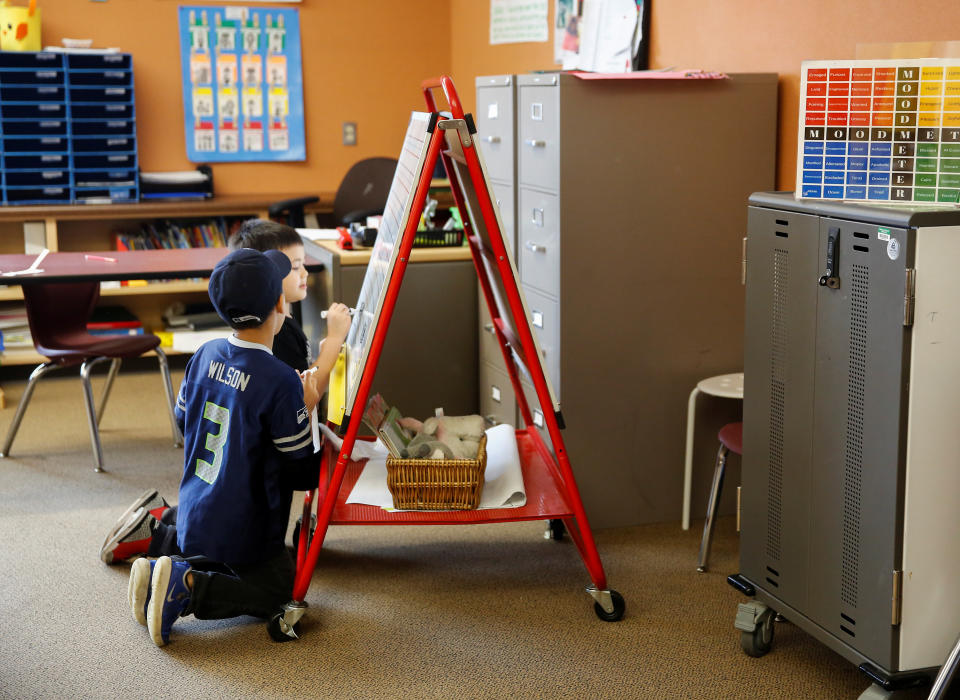
Ketel left her job in order to be able to take care of her son, whose condition wasn’t protected through the Americans with Disabilities Act, and became self-employed. Ketel was able to enroll in the marketplace health care program, which she said was affordable and “luckily didn’t discriminate that John had a pre-existing condition at this point, and it allowed me to survive financially.”
She also learned that her state of New Hampshire offered Medicaid supplements for children with certain diagnoses. John was approved for the program, and now Ketel doesn’t have to pay copays for him.
“ACA helped me be able to transition back to self-employment,” Ketel said. “And then along the way, I had to fight discrimination for John even on school grounds, and that allowed me to find out about these other programs that could bridge the gap on copays and co-insurance.”

Ketel’s son is one of the lucky ones. Others in the U.S. with Type 1 diabetes have resorted to rationing their insulin because of affordability issues, which has sometimes led to death. A 2019 study from the Journal of the American Medical Association (JAMA), a peer-reviewed medical journal, found that 1 in 4 diabetes patients reported rationing their insulin due to cost.
Ketel is also concerned about the rise in premiums, which have increased over the last several years.
“If the ACA gets overturned and we’re back to commercial insurance, then I think commercial insurance can increase premiums to the point that it may not be affordable,” she said. “You’re going to have to sacrifice some other thing. Parents are going to have to look at: How can you rob Peter to pay Paul?”
If she weren’t in the health care marketplace, Ketel estimated, her premium would be 2-3 times more than what it is now. When factoring in deductibles and coinsurance, she said she’d have to consider what expenses to begin sacrificing.
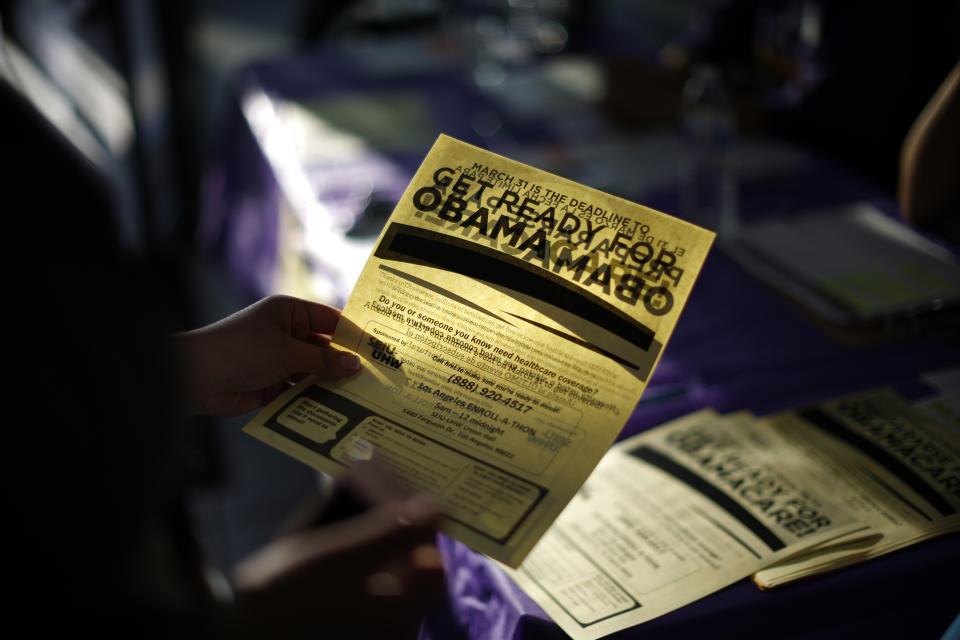
‘I would not be able to afford all this on my own’
Melissa Boyle, an 18-year-old student in Virginia, has pre-existing conditions including type 1 diabetes, asthma, ulcerative colitis, bipolar disorder, and postural tachycardia syndrome (POTS).
“It’s already pretty difficult getting health care for everything because it’s already super expensive, regardless of whether or not I have insurance,” Boyle told Yahoo Finance. “I use my parents’ BlueCross BlueShield health insurance but even with that, the total my family spends on health care-related issues, I think they said it was 80%, because all my own health care cost $23,000 just in one year with insurance.”
Several of her conditions incur high costs. She needs insulin for diabetes and inhalers for asthma. For her POTS, she has to see a doctor once a month in order to get prescriptions, which they won’t administer otherwise, and get tests done, which she said are expensive. For her bipolar disorder, she needs to see a therapist and psychiatrist and receive medications for it as well.
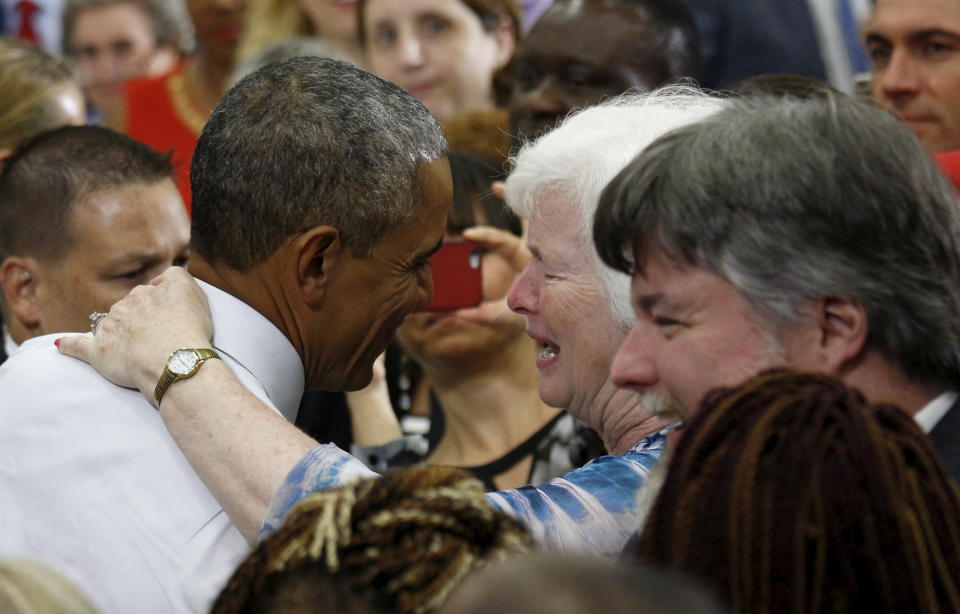
“Pretty much every single disorder I have requires seeing a doctor,” Boyle said. “I’ve been hospitalized twice in the last year. Once you’re in the hospital, everything is more expensive.”
Although she had a job all throughout high school, she quit it before going to college because of coronavirus and the fact that she is in a high-risk group. She has been looking for jobs but said it’s difficult because none so far have been able to accommodate the things she needs for her POTS, which causes her to not be able to stand for too long without passing out.
If the ACA were overturned, she said, her parents would likely take out loans from home equity.
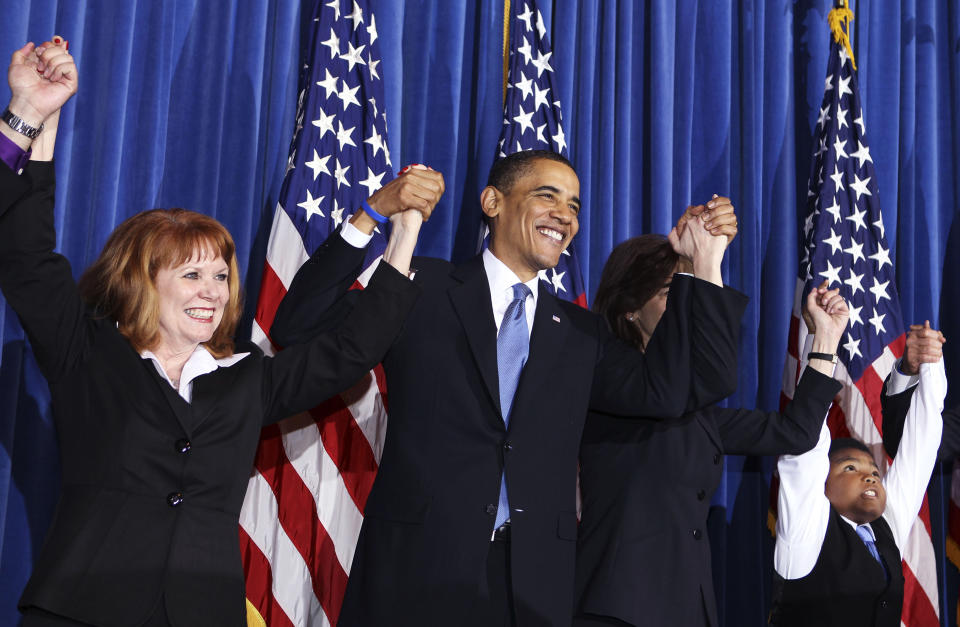
“I would not be able to afford all this on my own,” she said. “One year it was $23,000 and that’s with insurance. Without any insurance, it would be like $100,000, which I don’t have to spend.”
Although her parents would likely help her by taking out their own loans, Boyle said she still might have to start going off medications.
“I also have ADHD,” she said. “I might have to go off my ADHD medication, do stuff like that. Hopefully I wouldn’t have to, but there’s a chance I might have to take a year off or put my education on hold so I can pay for health care because education is also very expensive.”
Adriana Belmonte is a reporter and editor covering politics and health care policy for Yahoo Finance. You can follow her on Twitter @adrianambells.
READ MORE:
Obamacare repeal would bring a huge tax cut for the rich, research shows
Obamacare repeal would lead to more than 21 million Americans losing health insurance, study finds
Obamacare: Study highlights key benefit of Affordable Care Act ahead of Supreme Court arguments
Read the latest financial and business news from Yahoo Finance
Follow Yahoo Finance on Twitter, Facebook, Instagram, Flipboard, LinkedIn, YouTube, and reddit.
